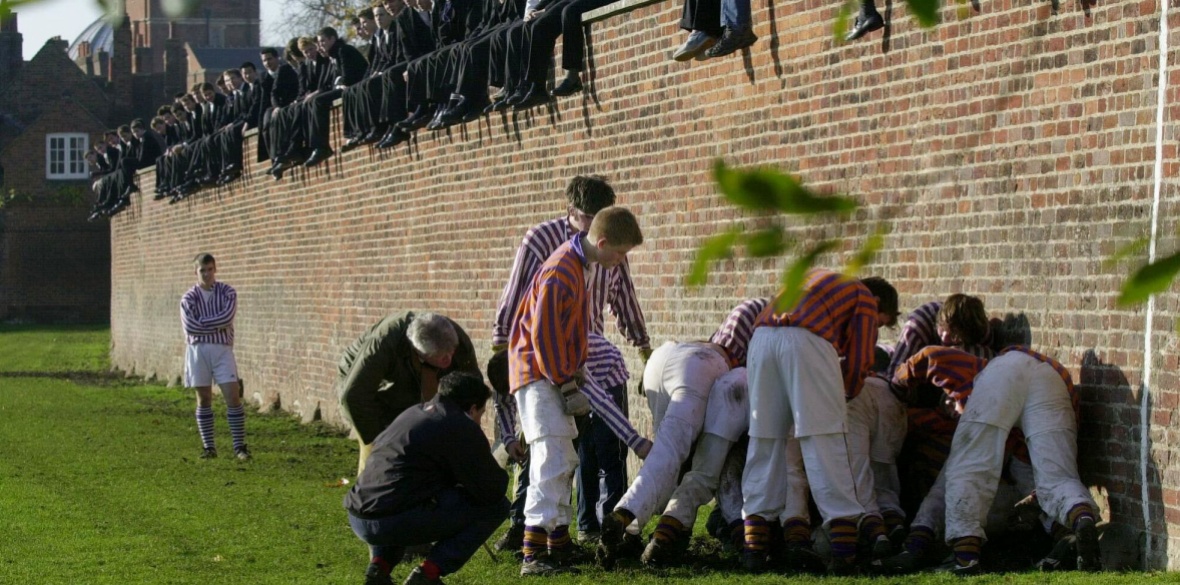#AbolishEton: A Response – Mr Lockyer
Opinion piece – In response to the #AbolishEton
As if there was not already enough in the press to cause you to splutter over your breakfast, the recent, anti-independent school narrative has added another layer of concern and irritation. In itself, the ‘abolish-Eton’ campaign points to part of the problem that schools such as The Royal Hospital School (RHS) face. Independent schools are portrayed as a single entity, populated by the children of the ultra-wealthy; as one Guardian columnist described; ‘sharp-elbowed parents’ with children whose confidence shades into ‘a poisonous sense of social superiority’. Independent schools are portrayed as institutions that promote ‘segregation of children by the bank balances of their parents’. The argument has become more emotive, more personal and with it, has appeared to have lost sight of the reality of schools such as RHS.

I should start by confessing that I would be very happy to see the end of fee-paying schools and to see an education system that delivers the same quality of provision and opportunities for all and for free. Schools that can genuinely provide the environment to inspire and transform a young person’s life chances. Schools where teachers feel part of the education community who give as willingly of their time and themselves to their pupils as I witness here as headmaster on a day to day basis.
In all the descriptions I read describing the consumers of private schools, little of it appears to resemble, or reflect, the parents I meet or the pupils that attend RHS. I would argue that RHS is more diverse and more globally representative than most schools. Within our school, the pupil (and parent) population represents a truly broad socio-demographic profile thanks to the ongoing generosity of our parent charity, Greenwich Hospital, and our partnerships with Royal Springboard and the Boarding School’s Partnership Programme, which provides boarding places with local authorities for children in care. Our school population is ethnically diverse, drawn from both UK resident pupils and enriched with pupils (14%) from 33 countries. This diversity is deeply embedded in the DNA of the school, in the thinking of the staff and governors and is widely acknowledged in the minds of our parents as a strong facet of RHS.
We know that school should be about preparing young people for life beyond; beyond the sleepy Suffolk plains, and we know that mixing children from different backgrounds breaks down misconceptions, prejudices and social barriers.
If you need any evidence of what RHS stands for and the pupils it develops, then you only need witness the prolonged applause that followed the ‘Thought for the week’ delivered by a member of Year 13 who spoke to the school in assembly recently. Her opening words were as courageous a statement as she could have made. “I’m ugly…” She went onto to challenge the stereotypes, the labels and perceptions she has encountered as a young black woman growing up in London and now being educated in Suffolk. She appealed to the school to remember to look beyond the stereotypical images and ideas we may hold and to understand the individual, so we don’t just tolerate, but we celebrate and accept one another.
The fact is, for a teenage girl to be able to stand up and make such an appeal in front of 750 fellow pupils says as much about the school community as it does her courage and character. This is a school that recognises there are injustices, there are those who have, those who have more and those who have very little at all. There is an undeniable sense that those at RHS are fortunate, but certainly not entitled, not expectant but rather cognisant that with hard work and an appreciation of one another, they can aspire to great things. Crucially, and in keeping with our ethos, many aspire not to power and affluence but to service and making a difference.
As teachers we spend a great deal of time encouraging our pupils to be discerning in their collation and interpretation of information, accurate in their analysis of data and in their correlation of the facts. We try hard to ensure pupils are open minded, tolerant, accepting and able to reach judgements based on good reason, logic and sensible analysis. It is perhaps nothing new for journalists and opinion formers to misrepresent reality, but in this instance, the greatest threat is to the principles they claim to espouse of equality, inclusion and social responsibility.
That young pupil’s words ring loud and clear that it is time for those critical of the independent school to look beyond the stereotypes and get to know the real motives and individuals who work and learn in schools like RHS.















Post Comment
You must be logged in to post a comment.